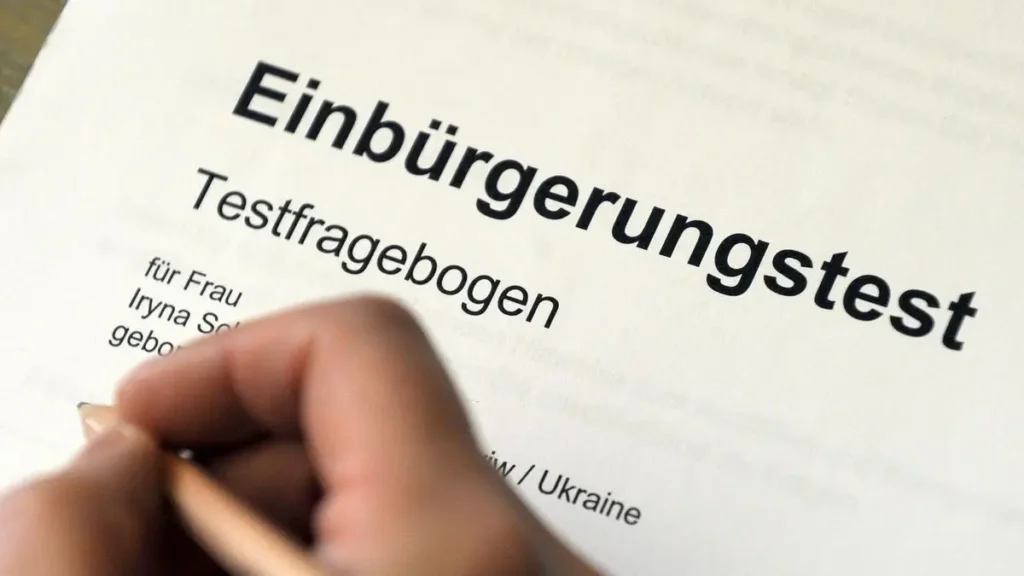In this comprehensive guide, we’ll explore the most common German Naturalization Rejection Reasons. Becoming a German citizen through naturalization is a significant milestone for many immigrants. However, the process can be complex and rigorous, with numerous requirements that must be met. If you’ve recently had your German naturalization application rejected, you’re not alone. Understanding the reasons for rejection can help you address any issues and potentially reapply successfully in the future.
1. Insufficient Length of Residence
The length of time you’ve legally resided in Germany is one of the most fundamental requirements for naturalization. Typically, you must have lived in the country for at least eight years with a valid residence permit. This period can be reduced to seven years with the successful completion of an integration course. Additionally, for those who demonstrate exceptional integration, it can be further shortened to just six years.
Reasons why applications may not be accepted:
- You haven’t met the minimum residency requirement
- Gaps in your residency due to extended periods spent outside Germany
- Inability to prove continuous legal residence for the required period
How to address this:
- Ensure you meet the residency requirement before applying
- Keep detailed records of your time in Germany, including all residence permits
- If you’ve spent significant time outside Germany, be prepared to explain and document these absences
2. Lack of German Language Proficiency
Demonstrating adequate German language skills is crucial for naturalization. Applicants typically need to prove B1 level proficiency according to the Common European Framework of Reference for Languages (CEFR).
Reasons why applications may not be accepted:
- Failing to pass the required language test
- Submitting outdated or invalid language certificates
- Inability to communicate effectively during the naturalization interview
How to address this:
- Invest time in learning German through formal classes or intensive self-study
- Take an officially recognized language test (e.g., Goethe-Institut examinations)
- Practice speaking German regularly to improve your conversational skills
3. Insufficient Knowledge of German Legal and Social Systems
Applicants must demonstrate knowledge of the German legal and social systems by passing the “Life in Germany” test (Leben in Deutschland Test). This test covers various aspects of German society, politics, and history.
Reasons why applications may be declined:
- Failing the “Life in Germany” test
- Insufficient preparation or understanding of the test material
- Inability to demonstrate practical knowledge during the naturalization interview
How to address this:
- Study thoroughly for the test using official materials and practice questions
- Engage with German news and current affairs to broaden your understanding
- Participate in local community activities to gain practical insights into German society
4. Financial Instability or Dependence on Social Benefits
To be eligible for naturalization, you must be able to support yourself and your dependents without relying on social welfare benefits (except for reasons beyond your control).
Reasons why applications are not approved:
- Long-term unemployment or underemployment
- Regular reliance on social welfare benefits
- Insufficient income to support yourself and your family
- Significant debts or financial obligations
How to address this:
- Secure stable employment or establish a successful business
- Maintain a consistent work history and keep records of your income
- If you’ve received benefits in the past, demonstrate how your situation has improved
- Address any outstanding debts or financial issues before applying
5. Criminal Record or Pending Legal Issues
A clean criminal record is essential for naturalization. Even minor offenses can potentially lead to the rejection of your application.
Reasons why applications are not approved:
- Convictions for criminal offenses, even if minor
- Ongoing criminal investigations or pending charges
- Failure to disclose past legal issues on your application
How to address this:
- Maintain a clean criminal record
- Be honest about any past legal issues on your application
- If you have a minor offense in your past, wait until it’s no longer relevant (usually after a certain period has passed)
- Seek legal advice if you’re unsure about how past issues might affect your application
6. Failure to Renounce Previous Citizenship
Germany generally requires naturalization applicants to give up their previous citizenship, although there are exceptions to this rule.
The reasons behind the rejection of applications:
- Unwillingness to renounce your current citizenship
- Failure to provide proof of renunciation or release from your previous citizenship
- Applying for an exception without meeting the specific criteria
How to address this:
- Research whether you qualify for dual citizenship exceptions (e.g., EU citizens, certain hardship cases)
- If required, initiate the process of renouncing your current citizenship
- Provide all necessary documentation proving your release from previous citizenship
7. Incomplete or Inaccurate Application
The naturalization application process involves extensive paperwork and documentation. Errors or omissions can lead to rejection.
The reasons behind the rejection of applications:
- Missing or incomplete documents
- Providing false or misleading information
- Failure to meet application deadlines or respond to requests for additional information
How to address this:
- Carefully review all application requirements and gather all necessary documents
- Double-check your application for accuracy and completeness
- Respond promptly to any requests from the naturalization office
- Consider seeking assistance from a legal professional or qualified immigration advisor
8. Lack of Integration into German Society
A strong level of integration into German society can greatly influence the decision to become a naturalized citizen, even if this isn’t always explicitly stated.
The reasons behind the rejection of applications:
- Limited involvement in local community or social activities
- Inability to demonstrate ties to Germany beyond work or study
- Lack of German friends or social connections
How to address this:
- Actively participate in local clubs, organizations, or volunteer activities
- Develop and maintain social connections within the German community
- Document your involvement in German cultural events or initiatives
9. Health Insurance Issues
Proper health insurance coverage is a requirement for naturalization in Germany.
The reasons behind the rejection of applications:
- Lack of adequate health insurance coverage
- Gaps in insurance history
- Reliance on travel insurance or temporary coverage plans
How to address this:
- Ensure you have proper German health insurance (public or approved private insurance).
- Maintain continuous coverage and keep records of your insurance history.
- Before submitting your naturalization application, it is essential to address any coverage gaps. Furthermore, be sure to review all your documents meticulously to prevent potential issues down the line.
10. Failure to Meet Specific Professional or Educational Requirements
Efficient naturalization may require specific professional or educational requirements, varying based on country regulations, making meeting these criteria crucial for a successful application.
Why applications get rejected:
- Inability to prove required qualifications or professional experience
- Lack of recognition for foreign degrees or certifications
- Failure to meet specific criteria for expedited naturalization based on special skills or education
How to address this:
- Ensure all your professional and educational qualifications are properly recognized in Germany
- Provide detailed documentation of your work experience and educational background
- If applying for expedited naturalization, carefully review and meet all specific requirements
Final thoughts
Understanding the causes of German naturalization rejections can help prepare for the application process, addressing problems and increasing the chances of successful future reapplication.
When deciding whether to grant citizenship, authorities consider a number of issues. Therefore, it’s crucial to carefully go over the grounds for any possible denial. Additionally, getting legal counsel can help you better understand your options.
Becoming a German citizen is a significant step that requires dedication, preparation, and patience. By addressing the potential issues outlined in this article, you can improve your chances of a successful naturalization application and take an important step towards making Germany your permanent home.






